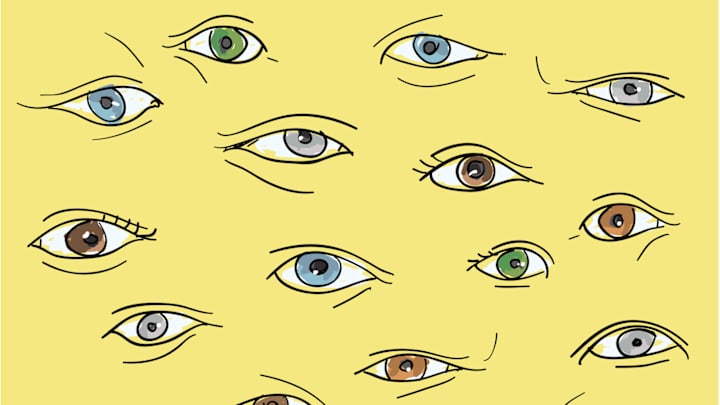We’ve all been there: You’re struggling to see something properly, so you narrow your eyes and somehow squint the world into slightly tiring clarity. But when you really think about it, there’s something counterintuitive about squinting. Why does using less of your eye help you see something more clearly?
Contrary to the common assumption that you’re “squishing your eyeballs” into working better, squinting does nothing of the sort—which, if you think about it for even a second, is a good thing. If squinting was the ocular equivalent of going to town on a stress ball, we’d all be in a lot of trouble.
But here’s why it does make sense: Your lens, on the front of your eye, is constantly changing shape in order to focus on objects both near and far. Squinting can offer a bit of an assist to this process, temporarily reshaping the lens further to help focus light where it needs to go. But where squinting comes into its own is in reducing the amount of light going into your eye.
To see well, we need light to be focused by the lens to hit the retina—which is located at the back of the eye—as precisely as possible. There are limits to how well we can do this, particularly in challenging light conditions, or when our lenses aren’t in great shape. This applies to a lot of us, as our lenses change as we age.
According to the Cornell Center for Materials Research, “As we get older, the lens of the eye becomes harder and cannot focus light as well as it used to. Also, some people have eyes that are slightly longer from front to back, which can make the light not focus correctly. By squinting people are actually changing the shape of their eye, just ever so little, so that the light focuses correctly on the retina.”
In other words: A less-than-perfect lens can, to put it incredibly simply, let too much light into your eye. Like narrowing the aperture on a camera, narrowing your eyes with your eyelids reduces this interference and only allows light to come in nearer the center of the lens, allowing for a more focused concentration of light on the retina. This is sometimes called the pinhole effect.
Also, contrary to some beliefs, squinting does not damage your eyesight—though doing it a lot can be a symptom of failing eyesight. However, you do blink less when squinting, so doing it for protracted periods of time—squinting at a computer screen all day, for instance—can lead to eye strain or dry eye.
It’s one thing to occasionally squint in order to make out something far away, or to be able to read the small print on a menu in a dimly-lit restaurant. But if you find yourself doing it all the time, getting your eyes tested should be your, uh, focus.
Have you got a Big Question you'd like us to answer? If so, let us know by emailing us at bigquestions@mentalfloss.com.
